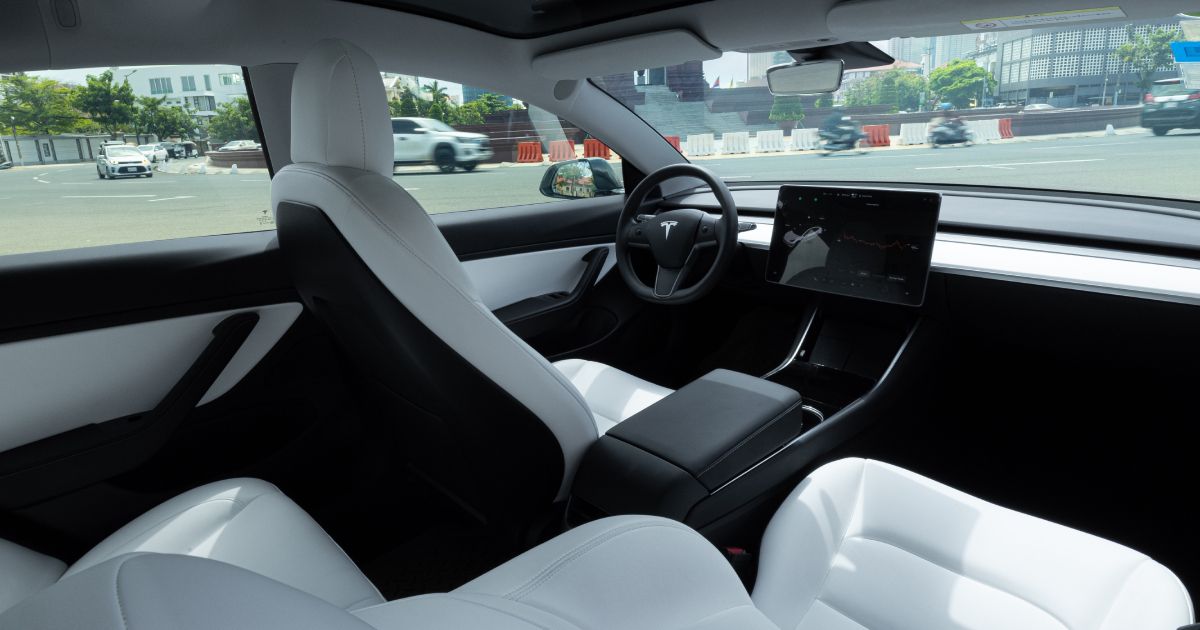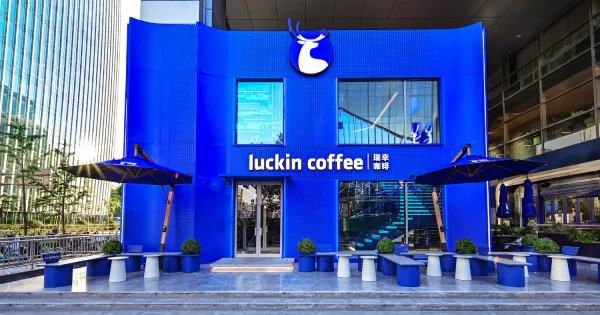Top 3 Business Impacts of Autonomous Vehicles

Autonomous vehicles, once the stuff of science fiction, are rapidly becoming a reality. These self-driving cars and trucks have the potential to revolutionize the transportation industry and have far-reaching implications for businesses across various sectors.
As technology advances and regulatory frameworks evolve, it is essential for businesses to understand the potential impacts that autonomous vehicles could bring.
In this article, we will explore the potential business impacts of autonomous vehicles and how companies can prepare themselves for this transformative shift in the transportation landscape.
1) Disruption in the Transportation and Logistics Industry

The advent of autonomous vehicles is poised to make a profound impact on the transportation and logistics sector. With the advancement of self-driving technology, traditional transportation systems are on the cusp of significant disruption.
Businesses heavily reliant on shipping goods and services will undergo major operational changes as they adapt to the new landscape. The introduction of autonomous delivery trucks and drones has the potential to revolutionize last-mile logistics, streamlining the process and facilitating faster, more cost-effective deliveries. Such advancements are expected to boost operational efficiency, reduce costs, and, most importantly, enhance customer satisfaction by ensuring swift and reliable service.
As autonomous vehicles become more widespread, companies will need to adopt innovative strategies to capitalize on the emerging opportunities and remain competitive in a rapidly evolving market.
Below are a few of the leading autonomous trucking companies:
- Waymo Via: Waymo Via is a division of Alphabet Inc., Google's parent company, and is focused on developing autonomous trucking technology. They have been working on self-driving trucks for long-haul freight transportation.
- TuSimple: TuSimple is a leading autonomous trucking company that specializes in developing self-driving technologies for long-haul freight transportation. They have been conducting pilot programs and testing their autonomous trucks on real-world delivery routes.
- Embark Trucks: Embark Trucks is another significant player in the autonomous trucking industry. They focus on developing self-driving systems for long-haul trucking operations, with the goal of increasing safety and efficiency in freight transportation.
Embracing these technological advancements in the transportation and logistics sector presents a chance for businesses to optimize their operations and provide unparalleled service to their customers. By staying at the forefront of this transformative shift, companies can position themselves for long-term success in the era of autonomous vehicles.
2) Shifts in the Automotive and Mobility Markets

The arrival of autonomous vehicles is poised to bring about substantial transformations in the automotive industry. Manufacturers of automobiles will encounter novel challenges and opportunities as they navigate this technological revolution.
The development of autonomous driving technology will demand advancements in software, sensors, and artificial intelligence, paving the way for the entry of new players into the market. Tech companies and startups that specialize in these domains may forge collaborations with established automakers or potentially emerge as direct competitors, disrupting the traditional landscape and reshaping the automotive sector.
Amidst these changes, businesses in the automotive industry must stay agile and adaptable to capitalize on the potential benefits of autonomous vehicles. Embracing the transformative technologies, collaborating with innovative partners, and investing in research and development will be critical to remain at the forefront of this rapidly evolving market.
Below are several of the leading autonomous car companies:
- Tesla: Tesla, led by Elon Musk, has been at the forefront of autonomous driving technology. They have been incorporating advanced driver-assistance features, like Autopilot, in their vehicles, and they have ambitious plans to achieve full self-driving capabilities.
- Waymo: Waymo, a subsidiary of Google's parent company Alphabet, is widely considered one of the pioneers in autonomous driving technology. They have been extensively testing their self-driving cars on public roads and have a strong focus on developing robust autonomous driving systems.
- Cruise: Cruise is an autonomous driving company majority-owned by General Motors. They have been developing and testing self-driving technology for a range of electric vehicles, with the goal of deploying autonomous ride-hailing services.
By proactively embracing the advancements in autonomous driving, automotive companies can position themselves for success and maintain their competitive edge in an industry that is set to be revolutionized by self-driving vehicles.
3) Opportunities in New Business Models and Industries

While the emergence of autonomous vehicles may cause disruptions in certain industries, it also holds the potential to create new opportunities for innovative business models and industries to thrive. As vehicles become increasingly autonomous, passengers will find themselves with additional free time during their journeys. This presents a wealth of possibilities for businesses to cater to passengers' needs and desires.
Companies can explore offering in-car entertainment options, transforming vehicles into mobile office spaces, and providing on-demand services within the vehicle. Businesses that can capitalize on these newfound possibilities by providing innovative and compelling experiences to passengers stand to gain a significant competitive advantage in this evolving market.
In the era of autonomous vehicles, companies must remain attuned to the changing preferences and demands of consumers who seek enhanced experiences during their travels. Embracing this transformative shift opens doors for businesses to diversify their offerings and expand their market reach. Whether it's providing personalized entertainment options, seamless connectivity, or convenient on-the-go services, companies that can deliver value-added experiences to passengers are likely to differentiate themselves and thrive in the new landscape shaped by autonomous vehicles.
Final Thoughts
The potential business impacts of autonomous vehicles are vast and varied. While the technology offers exciting opportunities for enhanced efficiency and innovation, it also poses challenges for industries and workforces that heavily rely on traditional transportation models.
To thrive in this evolving landscape, businesses must stay abreast of the latest advancements in autonomous vehicle technology, adapt their strategies, and be prepared to embrace new opportunities.
By understanding the potential business impacts of autonomous vehicles and proactively planning for the future, companies can position themselves to navigate this transformative era successfully.





